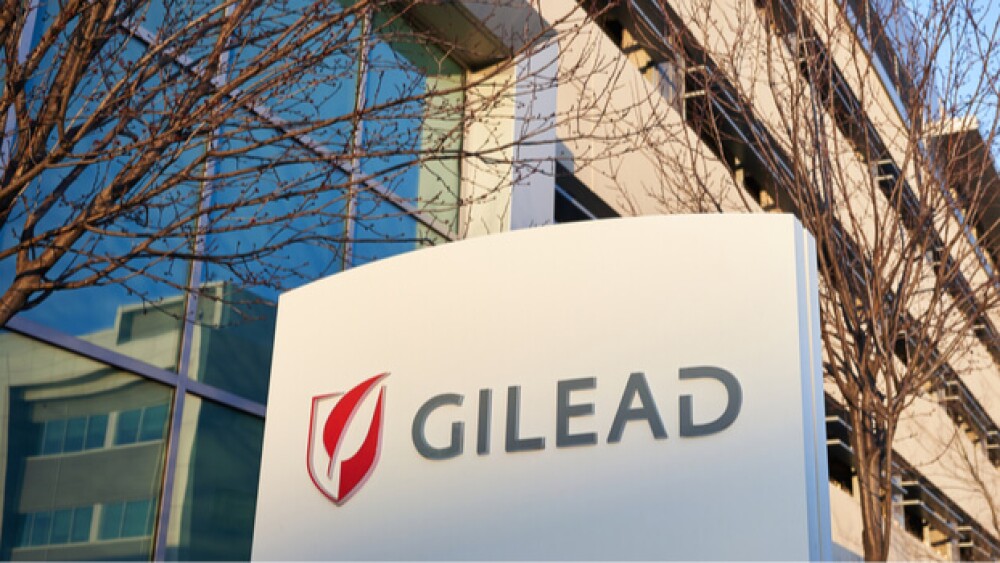Today, Gilead announced that it was acquiring a 49.9% equity interest in Pionyr Immunotherapeutics for $275 million and exclusive option to buy the rest of the company.
Tada Images / Shutterstock
While all eyes have been on Gilead Sciences for its work on COVID-19, primarily its remdesivir, it has continued to deepen it oncology pipeline. Today, the company announced that it was acquiring a 49.9% equity interest in Pionyr Immunotherapeutics for $275 million and exclusive option to buy the rest of the company. If Gilead picks up that option, Pionyr’s shareholders could find themselves receiving up to $1.47 billion in option exercise fees and possible milestone payments.
Pionyr’s Myeloid Tuning therapies are designed to treat patients who don’t benefit from checkpoint inhibitors. Two of its compounds, PY314 and PY159, have shown efficacy in preclinical studies, hinting at effectiveness against solid tumors in combination with established checkpoint inhibitors, anti-PD(L)-1 drugs.
Pionyr plans to file Investigational New Drug (IND) applications with the U.S. Food and Drug Administration (FDA) in the third quarter of this year. Based on Phase I results for either drug, or even sooner if Gilead wants to, the company can acquire the remainder of Pionyr.
“Pionyr is pursuing promising, novel biology in the field of immuno-oncology,” said Daniel O’Day, chairman and chief executive officer of Gilead. “The agreement represents important progress as we continue to build out Gilead’s presence in immuno-oncology with innovative and complementary approaches. We look forward to seeing the programs advance with the goal of developing new therapies that will improve the treatment of cancer.”
Under the terms of the deal, Gilead is paying $275 million for 49.9% of common stock and the acquisition option. If Gilead triggers the option, there is a $315 million option fee and up to $1.15 billion in possible milestone payments. Also, Gilead will provide Pionyr with extra funding for the PY314 and PY159 programs in addition to ongoing research and development programs.
Gilead has the right to nominate one person to Pionyr’s board of directors. Also, Gilead and the other Pionyr stockholders will jointly pick and nominate one independent individual to Pionyr’s board of directors.
On May 27, Gilead and Arcus Biosciences signed a 10-year partnership deal to co-develop and co-commercialize a number of Arcus’s pipeline products. Arcus focuses on the oncology market, both immuno-oncology and cell-intrinsic pathways using both small molecules and antibodies.
Under the terms of agreement, Gilead paid Arcus $375 million on closing, with $175 of it upfront and $200 million in equity. Arcus is eligible for up to $1.225 billion in opt-in and milestone payments based on its current clinical product candidates. In addition, Gilead gets access to the company’s current and future investigational immuno-oncology products. That includes rights to zimberelimab and the right to opt-in to all other current Arcus clinical candidates, including AB154, AB928 and AB680. The opt-in fees range from $200 million to $275 million per program.
If Gilead chooses to opt-in to the AB154 program, Arcus is eligible for up to $500 million in possible future U.S. regulatory approval milestones.
The $200 million equity investment comes to $33.54 per share. Gilead will gain the option to acquire additional shares of Arcus up to a maximum of 35% of outstanding voting stock over the course of the next five years, at a 20% premium at the time of the option, or, if greater, at the initial purchase price per share.
In March, Gilead acquired Forty Seven for $95.50 per share, a deal value of $4.9 billion. It picked up Forty Seven’s lead product candidate, magrolimab, a monoclonal antibody in the clinic for several cancers, including myelodysplastic syndrome (MDS), acute myeloid leukemia (AML) and diffuse large B-cell lymphoma (DLBCL).
Gilead is much better known for its antiviral work. These days the big focus has been on COVID-19, with the company’s remdesivir the only antiviral approved under an emergency use authorization by the U.S. Food and Drug Administration (FDA). The company has an extensive portfolio in HIV and hepatitis, as well. But in recent years Gilead has been expanding heavily into the cancer space.
Only yesterday, Gilead announced plans to launch a Phase I clinical trial in August of an inhaled version of remdesivir in COVID-19. Now it is dosed intravenously via daily infusions.
And on June 18, the company indicated it planned to begin enrolling an open-label, single-arm Phase II/III trial of remdesivir in about 50 pediatric patients with moderate-to-severe COVID-19, including newborns through adolescents.





